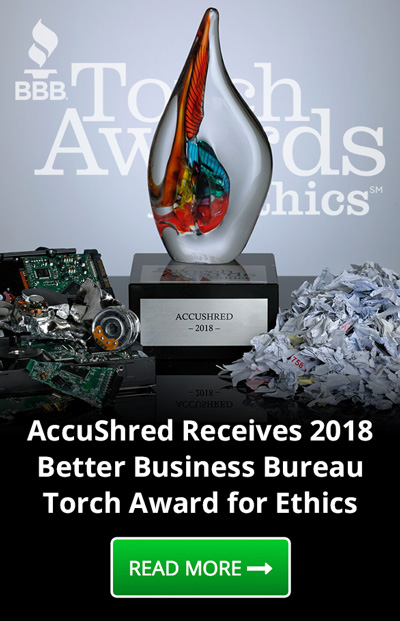Why Shred
The courts have ruled in many cases that trade secrets are not protected if they are thrown into the garbage. In order to prevent identity theft or corporate espionage, it is important that any records with private information be destroyed and disposed of properly.
Laws
 Because of sensitive information, new laws have been passed that require destruction of this information before proper disposal. Laws such as HIPAA (health care) and FACTA (financial) require specific physical safeguards such as shredding to meet and maintain compliance.
Because of sensitive information, new laws have been passed that require destruction of this information before proper disposal. Laws such as HIPAA (health care) and FACTA (financial) require specific physical safeguards such as shredding to meet and maintain compliance.
Employees
You have a legal responsibility to protect your employees’ personal information. Whether it is employment applications, health records, attendance records, time cards or accident reports, you are legally required to properly destroy these records before disposing of them.
Customers
Your customers provide you with confidential information. They expect you to keep this information confidential and not let it get “into the wrong hands”. With identity theft on the rise, your customers have the right to expect that when you no longer need their information, it will be responsibly destroyed.
Rights to Trade Information
Courts will not recognize trade information protection if a company doesn’t protect the information themselves. The US Supreme Court has ruled that you forfeit the right of ownership to discarded information. In other words, if you throw it away without destroying it, anyone can use it.
Long ago, shredding documents was thought to be suspect activity. This is not the case now. Identity theft, privacy violations, and information-based fraud are the fastest growing crime segments in the United States. Secure document destruction is a viable, responsible solution to the fight against identity theft.
Reasons to use a NAID Certified Data Destruction Contractor
- Increase employee productivity. Your employees will be able to do the job for which they were hired, rather than taking time out to destroy sensitive information.
- Employees that are used to destroy information should not be exposed to certain sensitive information (payroll information, legal issues, and personal correspondence).
- Office shredders can’t handle large volumes, can’t take staples or clips, can’t destroy film or computer discs, can cause injury if they grab clothing or accessories and are usually not used consistently by employees which can create a liability to your company. You will reduce your liability and capital expenditures by destroying the sensitive information using professional paper shredding services.








